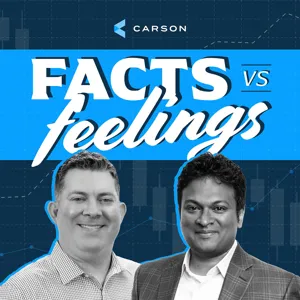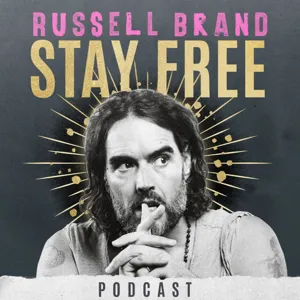Podcast Summary
NPR Podcasts Start a New Initiative: The 'Planet Money Book Club': NPR podcasts like All Songs Considered, 1A, and Pop Culture Happy Hour start a new initiative, inviting listeners to join discussions on the books that have captivated the hosts, exploring history, credit markets, and cultural topics.
Our favorite podcasts, including All Songs Considered from NPR Music, 1A, Pop Culture Happy Hour, and All Latino from NPR Music, offer a wealth of knowledge and insights beyond what makes it into their episodes. To share some of these fascinating tidbits, the hosts have started a new initiative called the "Planet Money Book Club," where they discuss the books that have captivated them and why. Mary Childs from All Songs Considered is currently reading "American Bond: How Credit Markets Shaped a Nation" by Sarah L. Quinn, which explores the history of America and the role of credit and credit markets in shaping the nation. Other podcasts, like 1A and Pop Culture Happy Hour, also invite listeners to join their conversations and share their own thoughts on the latest books and cultural topics. So, if you're looking for thought-provoking discussions and recommendations, be sure to tune in to these podcasts and join the unofficial book club.
The deep relationship between government and finance in America: Approximately one-third of all privately held debt in the US is backed by the federal government, and the government's influence extends beyond this through tax incentives.
The relationship between government and finance in America is deeper and more complex than commonly understood. The book discusses how politicians have used credit markets as an off-budget tool to accomplish their goals, with government participation in the mortgage market being a significant example. This participation dates back to the 1800s, when corporations were viewed as extensions of the government. Today, approximately one-third of all privately held debt in the United States is backed by the federal government, and this doesn't even account for tax incentives that encourage lending. The ways in which the government encourages us to take on credit are vast and far-reaching, shaping the conversation around individualization and the role of corporations in our society. This historical perspective sheds light on the significant degree of government involvement in the American financial system.
Understanding Economics and History through Different Perspectives: Exploring various perspectives and frames can deepen our understanding of historical and economic events, revealing new insights and implications.
Our perspectives and priorities shape the way we understand and approach various topics, including economics and history. Mary is currently engrossed in "American Bonds, How Credit Markets Shaped a Nation," which has led her to consider the sociological aspects of finance that she hadn't previously considered. Meanwhile, Lexi is reading "The End of Globalization" by Harold James, published in 2001, which posited that the end of globalization was near due to societal unrest and changing economic dynamics. The discussion highlighted the importance of considering different frames and perspectives when examining historical and economic events. For instance, in the late 1800s, rubber was a valuable resource, and European countries sought to control its production and prices by setting up plantations in Brazil. However, this led Brazil to find new exports, and the same dynamic continues to play out in various contexts. By delving into these books and the historical contexts they provide, both Mary and Lexi have gained new insights into their respective topics and the broader implications of economic and social dynamics. This exchange underscores the value of engaging with diverse perspectives and considering the sociological implications of economic events.
Shift in trade strategies due to shipping instability: Countries are rethinking what they move globally due to supply chain disruptions, leading to a shift towards trading blocks and strategic thinking
This dynamic, which has been observed for over a hundred years, is currently leading to a shift in trade and supply chain strategies. During times of shipping instability, countries become strategic about what they move around the planet. This concept, which was relevant during the first World War, is being revisited in today's context due to supply chain disruptions. The book, written 21 years ago, predicted the sustainability of globalization, but the current trade landscape shows a break-up into trading blocks and a need for strategic thinking about what is being moved globally.
Exploring the Impact of Human Activities on Global Biodiversity: Human activities, particularly climate change and habitat destruction, are causing a mass extinction event that threatens thousands of species. We must reflect on the interconnectedness of all life on Earth and take action to preserve biological diversity for future generations.
Elizabeth Colbert's "The Sixth Extinction" is a Pulitzer Prize-winning book that explores the impact of human activities on the planet's biodiversity, with a focus on the current extinction event caused by climate change and habitat destruction. The book provides a historical perspective on previous mass extinction events and raises thought-provoking ideas about biological diversity and speciation as a process of isolation. The author's episodic narrative takes readers on a journey around the world, highlighting the human-induced threats to thousands of species and the efforts to preserve their genetic material. The book challenges readers to consider the implications of human-driven globalization on the planet's biosphere and the potential consequences for future generations. Ultimately, it invites us to reflect on the interconnectedness of all life on Earth and the importance of preserving the rich tapestry of biological diversity.
The Consequences of a Connected World: Mixing and remixing species, intentionally and unintentionally, leads to new diseases and invasive species, with existential consequences for some organisms, but also creates winners – thriving pathogens and invasive species.
This process of mixing and remixing species, both intentionally and unintentionally, has resulted in new diseases and invasive species that are having existential consequences for various organisms. However, it's important to note that this phenomenon also creates winners – pathogens and invasive species that are thriving in new environments. Overall, it's a challenging time for many species, but a potentially profitable one for certain markets. The book offers a thought-provoking perspective on the consequences of our increasingly interconnected world.
Exploring the world beyond headlines with insightful podcasts: Discover fresh perspectives on current events and scientific discoveries through podcasts like 'Here and Now', 'It's Been A Minute', and 'Shortwave'.
There are valuable podcasts that offer deeper insights into current events and scientific discoveries beyond the usual headlines. "Here and Now" from NPR and WBUR provides context and analysis on the news stories that matter to us, while "It's Been A Minute" explores the emotional impact of the news cycle. Meanwhile, "Shortwave" from NPR introduces us to unsung women scientists who have made groundbreaking discoveries. Whether you're interested in politics or science, these podcasts offer fresh perspectives and expand our understanding of the world. It's important to look beyond the well-known names and delve deeper into the stories and people shaping our world.






